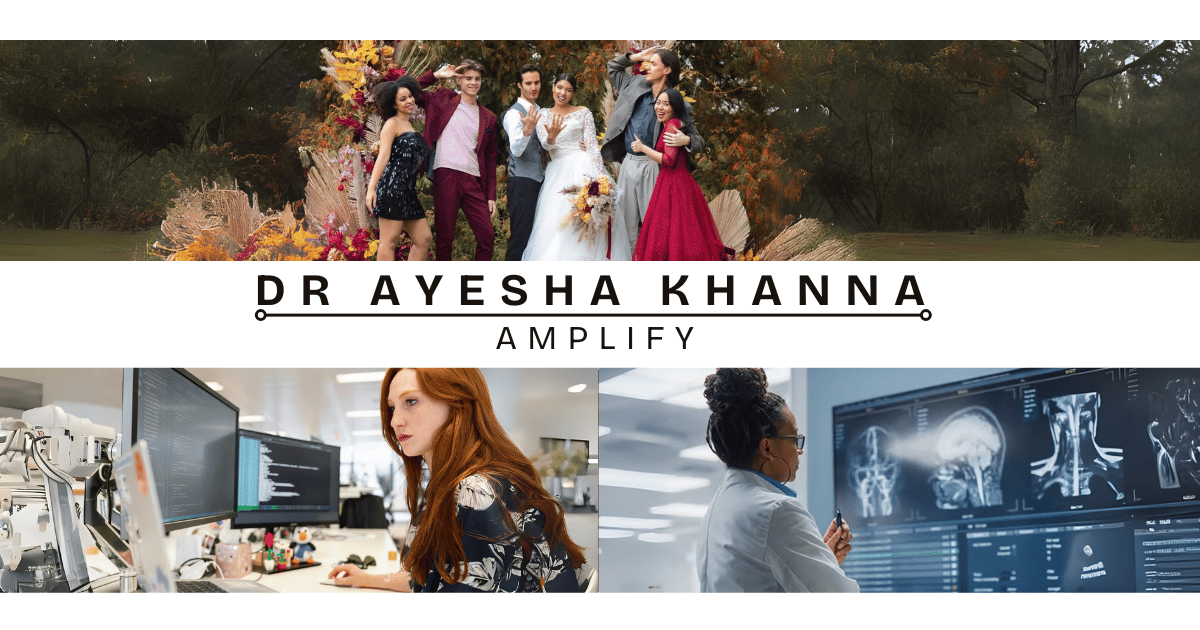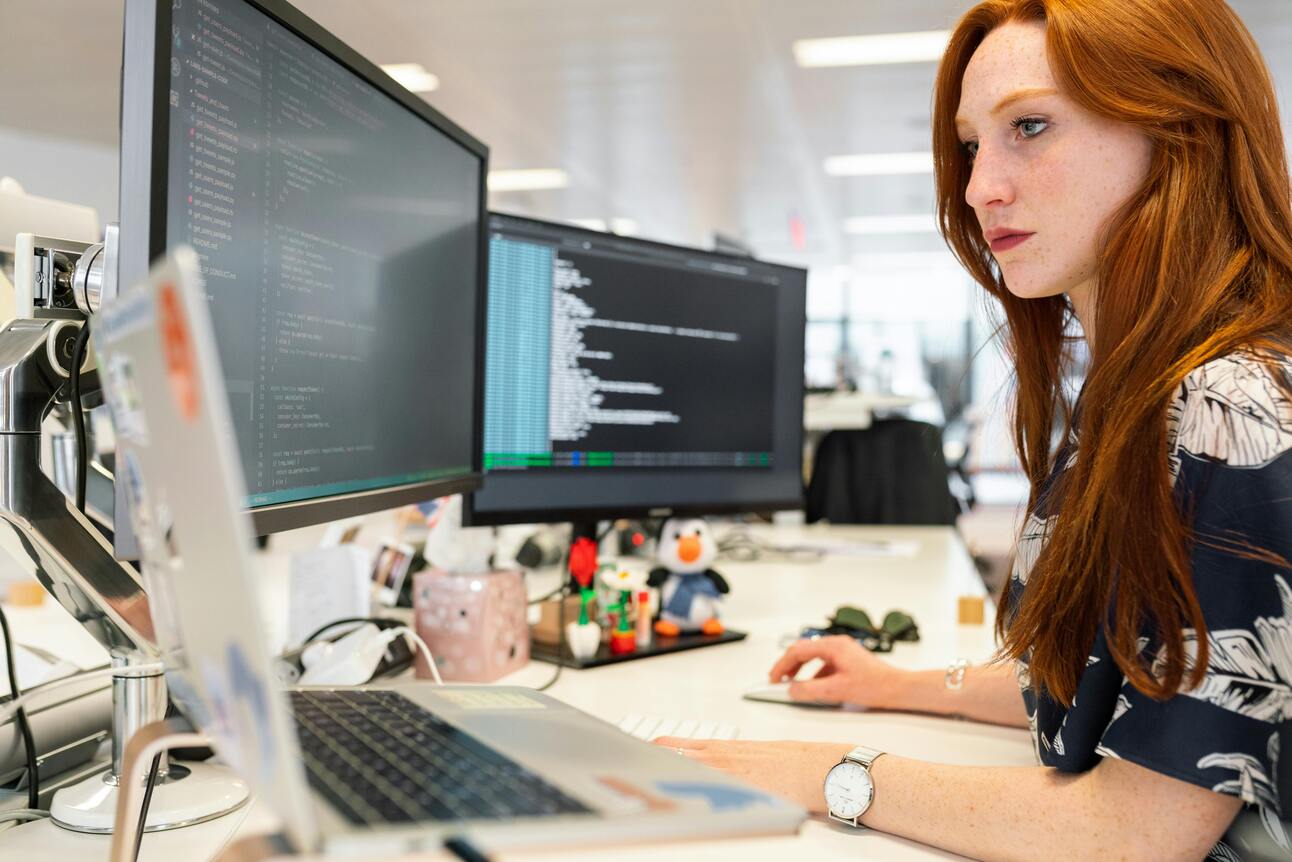- Amplify with Dr. Ayesha Khanna
- Posts
- This Indian AI Diagnoses Millions with Just a Scan
This Indian AI Diagnoses Millions with Just a Scan
AI news, leaders, business insights and more

Hi everyone,
Here’s today’s tech news:
This Indian AI Diagnoses Millions with Just a Scan
AI Just Took a Job on Wall Street
Would You Let AI Plan Your Big Day?
AI Around The World
NEWS YOU CAN’T MISS
This Indian AI Diagnoses Millions with Just a Scan

Indian health tech company Qure.AI was just named to Time Magazine’s 2025 Most Influential Companies list for its use of AI to help doctors detect serious illnesses (such as tuberculosis, stroke, and lung cancer) earlier.
Its software scans medical images and flags risks that might otherwise be missed - especially in busy or under-resourced clinics.
Here’s what sets it apart:
While many AI health tools are built for high-end hospitals, Qure.AI designs its technology to work in low-resource settings. It functions with older X-ray machines, handheld devices, or cloud-based uploads - making it more accessible in rural or underserved areas.
The company also addresses a common concern in medical AI: the “black box” problem, where doctors can’t see how decisions are made. Qure.AI makes its findings visible (highlighting what it detects, such as suspicious nodules or brain bleeds) and produces structured, radiologist-style reports.
In hospitals where a single radiologist might review hundreds of scans daily, Qure.AI helps flag urgent cases first. That means fewer missed emergencies and less clinician burnout.
Its tools are now used globally, including by major players like AstraZeneca, Medtronic, and Johnson & Johnson. The company says it screens around 15 million patients annually.
Founded in 2016, Qure.AI has received 18 FDA clearances in the US for its diagnostic imaging AI tools and is deployed in 100 countries. With 60–70% annual revenue growth, it is now expanding in Latin America and Africa, where specialist care is limited.
As someone passionate about impactful AI, I’m watching Qure.AI closely.
AI Just Took a Job on Wall Street

At Goldman Sachs, software developers play a huge role in keeping the bank’s systems running, from trading platforms to cybersecurity tools.
But much of their time isn’t spent writing new code. Like many in the tech world, developers often find themselves tied up in repetitive tasks: updating old scripts, fixing code, or handling manual changes.
Studies show that these low-value jobs eat up over 50% of coders’ time, sometimes leaving less than an hour daily for actual work.
To address this, Goldman is bringing in an AI engineer for backup:
The bank has started testing Devin, an AI software engineer created by startup Cognition Labs (which launched last year and is already valued at almost $4 billion).
Unlike basic code assistants, Devin is designed to take on full assignments with minimal help. Developers can give it instructions in plain English (like “migrate this app to a new language”) and Devin handles the task from start to end.
Goldman’s CIO Marco Argenti describes it as building a “hybrid workforce,” where engineers guide and oversee AI tools rather than doing everything themselves.
In some early cases, Devin has boosted productivity by up to 4x on routine work. Still, the tech is early-stage; independent tests showed that Devin completed just 3 out of 20 real-world software tasks.
Why it matters: By offloading repetitive tasks to AI, developers can focus on solving harder problems and building better systems. For a massive company like Goldman Sachs (where speed, reliability, and scale are critical) tools like Devin could become an integral part of how strong software gets built.
Would You Let AI Plan Your Big Day?

Planning a wedding can take months. Between organizing guest lists, comparing vendors, sending invites, and tracking budgets, it’s easy to feel overwhelmed.
Some ask ChatGPT for checklists, vendor emails, or even help writing their wedding website. Others are turning to wedding-specific platforms (like Bridesmaid for Hire or Nupt.ai) that offer itinerary planning, smart RSVP tracking, and automated seating charts based on guest preferences and family dynamics.
Mainstream services like Zola and Canva are also building AI into their platforms, offering features like thank-you note generators and task-splitting tools.
While AI is becoming a popular way to save time on wedding planning, not everyone is on board. Some feel that automating these tasks risks losing the personal touch that makes a wedding meaningful. What do you think?
Planning a wedding with AI - good idea or way too impersonal? |
AI Around The World:
The London School of Economics is launching a £4M research center to study how AI can help humans communicate with animals. It will investigate animal consciousness, the impact of AI tools on pet welfare, and how automation is changing farming. Researchers are also aiming to develop global ethical guidelines for using AI with animals.
Italian energy leader Eni is teaming up with UAE’s Khazna to build a huge data center in northern Italy to power AI. It will run on cleaner energy from gas plants that capture carbon emissions before they are released into the air. The project is part of a larger plan between Italy and the UAE to boost digital infrastructure across Italy.
US firm Meta has acquired Play AI, a startup that builds AI tools for generating realistic, human-like voices and simplifying voice creation. The entire Play AI team will join Meta to support projects like AI Characters, Meta AI, Wearables, and audio content. The acquisition fits into Meta’s wider AI push, which includes talent from OpenAI and a new superintelligence unit led by Scale AI’s CEO.
Until next time!
Ayesha ❤️
ps. Let's be friends on LinkedIn and Instagram, if you like this newsletter, share it with your friends and family here.
I'd love your feedback...Please vote below to help me improve the newsletter. |